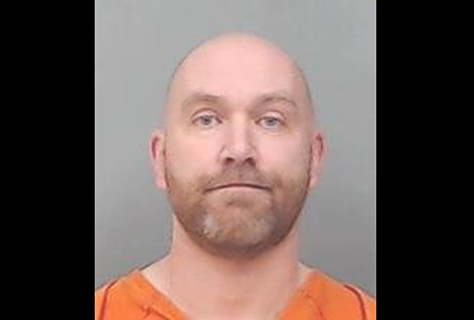A federal appeals court upheld a life prison sentence Monday (1/4) for an influential Iowa youth basketball coach who used his position to sexually exploit more than 400 boys over 20 years.
A panel of the 8th U.S. Circuit Court of Appeals rejected Gregory Stephen’s argument that his 180-year sentence was excessive because he did not kill or physically injure his victims.
Stephen, 45, worked with Iowa’s most promising youth players as a coach of the Iowa Barnstormers, which was sponsored by Adidas and competed nationally. Many of the teenagers he coached earned college scholarships, including to play at universities such as Iowa, Northern Iowa and Wisconsin.
Stephen amassed a digital collection of thousands of sexual images of his players and their friends. He did so by pretending to be a teenage girl and enticing them to provide videos and photos of themselves masturbating — relationships that went on for years in some cases. He secretly recorded others undressing in bathrooms in hotels and his home.
On at least 15 occasions between 1999 and 2018, prosecutors say Stephen molested boys, often as he shared a hotel bed with them during trips to tournaments and professional basketball games.
Stephen pleaded guilty to sexual exploitation and pornography charges but argued his sentence was excessive because his conduct was primarily as a voyeur.
Circuit Judge Raymond Gruender wrote in Monday’s opinion that Stephen’s argument “grossly downplays the seriousness and magnitude of his offense.” He agreed with U.S. District Judge C.J. Williams, who sentenced Stephen in 2019 to the maximum possible sentence, “that the harm to the children was ‘incalculable and profound’ and radiated to their families.”
“Further, the district court acknowledged that Stephen’s use of his position as a youth basketball coach to carry out his offense made it even more sinister,” Gruender wrote.
Stephen is serving his sentence at the federal penitentiary in Tucson, Arizona.
Investigators uncovered his crimes after Stephen’s former brother-in-law found a secret recording device while performing remodeling work at Stephen’s home in Monticello and gave it to police.
Investigators raided Stephen’s homes and found a hard drive that contained more than 400 file folders, each with the name of a different boy, and thousands of images. A trove of additional pornographic material was waiting to be organized.
The appeals court found that the seizure of the recording device did not violate Stephen’s rights. His former brother-in-law was not acting as a “government agent” when he discovered the hidden camera and ultimately gave it to police out of a concern that Stephen was recording boys, the court concluded.
“Not every Good Samaritan is a government agent,” Gruender wrote.
A police chief who accepted the device without a warrant did not commit an illegal search, and the Division of Criminal Investigation did not exceed the scope of a court-authorized search when examining its contents, he added.
Players who suffered abuse are pursuing a lawsuit against the Barnstormers; the Amateur Athletic Union, which sponsored tournaments in which they played; and Adidas, alleging they were negligent in supervising Stephen.
“The victimization of these youth athletes doesn’t happen but for the lack of reasonable safety structures,” said their attorney, Guy Cook.
Cook said Monday’s decision could clear the way for Stephen to face a deposition in which he answers questions under oath. The lawsuit is set for trial in January 2022, absent a settlement.




